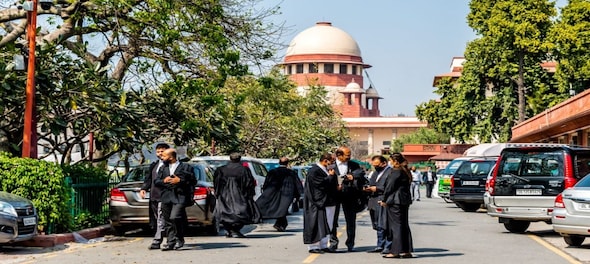
The Supreme Court on Friday rejected a plea to ban the British Broadcasting Corporation (BBC) in India, citing lack of merit. It said the petition was misconceived and accordingly dismissed.
The petition was filed by Vishnu Gupta, president of the Hindu Sena, and Beerendra Kumar Singh, a farmer, who alleged that the BBC had been biased against India and the Indian government.
The petitioners claimed that the BBC’s documentary on Prime Minister Narendra Modi was a “result of deep conspiracy against global rise of India and its Prime Minister.” The petition also complained that the documentary was anti-Hinduism propaganda and sought to destroy the social fabric of India.
In response, a bench comprising Justices Sanjiv Khanna and M M Sundresh dismissed the plea, stating that it was “entirely misconceived.” The court further directed the Centre to produce original records relating to its decision to block the BBC documentary.
The judges said, "How can the Supreme Court pass such orders? The writ petition is entirely misconceived and has no merit and is accordingly dismissed."
The petitioners’ action came after the government issued directions on January 21 to block multiple YouTube videos and Twitter posts sharing links to the controversial documentary. Veteran journalist N Ram, Trinamool Congress MP Mahua Moitra, activist lawyer Prashant Bhushan and lawyer M L Sharma have all filed separate petitions challenging the government’s decision.
The BBC documentary, which has been the subject of controversy, has yet to be released in India. It is unclear when the public will be able to view the film and make a judgement of its contents.
The ban on the documentary has sparked protests and agitations in India and abroad. Critics of the government and advocates of free speech have expressed their opposition to the ban, while others, including some members of the Indian diaspora, support the ban and protest against the BBC. The documentary and its ban have also triggered outrage from students across colleges and universities in the country.
The Supreme Court's decision to dismiss the petition seeking a complete ban on the BBC in India highlights the importance of freedom of speech and media in the country. The court's stance on the matter is expected to set a significant precedent for similar cases in the future.
ALSO READ | PM Modi to inaugurate two Vande Bharat Express trains in Mumbai; check ticket prices and routes
First Published: Feb 10, 2023 2:24 PM IST
Check out our in-depth Market Coverage, Business News & get real-time Stock Market Updates on CNBC-TV18. Also, Watch our channels CNBC-TV18, CNBC Awaaz and CNBC Bajar Live on-the-go!


Rapido offers free rides to voters to polling stations on May 13 in Hyderabad, 3 other cities
May 6, 2024 5:49 PM
Lok Sabha elections 2024: Seats to date, all you need to know about third phase of voting
May 6, 2024 4:49 PM
Concerns on low voter turnout a "myth"; absolute number of voters correct way to analyse: Report
May 6, 2024 2:57 PM
Haryana Lok Sabha elections 2024: A look at JJP candidates
May 6, 2024 2:26 PM

